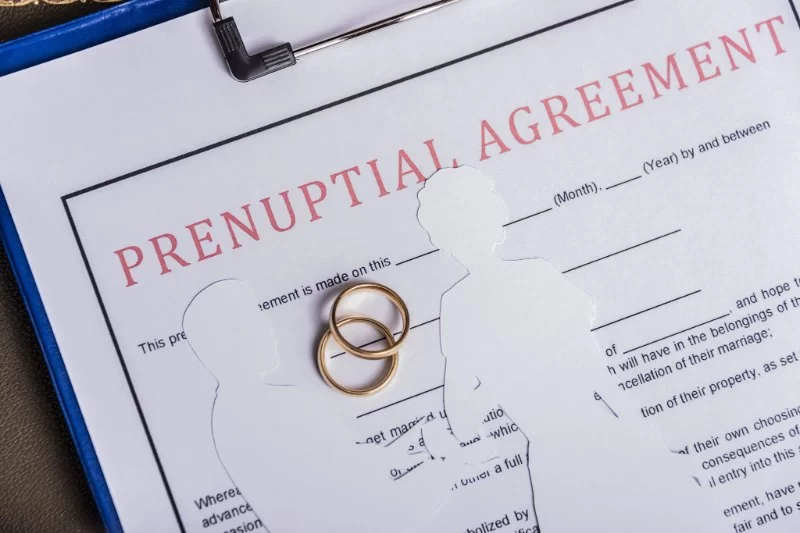
- what-prenuptial-agreements-actually-cover
- when-and-why-you-should-consider-a-prenup
- common-misconceptions-about-prenups
- real-life-cases-that-show-the-value
- how-to-make-your-agreement-legally-solid
1. What Prenuptial Agreements Actually Cover
When people hear “prenuptial agreement,” many immediately think about wealth protection. While that’s certainly a part of it, the truth is that a prenup goes far beyond just money. A well-drafted prenuptial agreement can outline how assets, debts, business interests, and even pets are handled if the marriage ends in divorce or death.
It’s not just about protecting the rich. Couples of all income levels use prenuptial agreements to clarify financial responsibilities, define marital property, and prevent future legal battles. For example, if one partner owns a small business, a prenup can ensure that business remains separate property—protecting both parties in case of future disputes.
If you’re unsure which aspects apply to your situation, ESPLawyers offers tailored legal guidance to help you structure an agreement based on your specific financial and personal goals.
2. When and Why You Should Consider a Prenup
2.1 Planning Beyond Love—Thinking Long-Term
It may not sound romantic, but talking about a prenuptial agreement before getting married is one of the most practical conversations a couple can have. Financial disagreements are among the top reasons marriages fail, and having a prenup forces both partners to be transparent about finances, expectations, and values.
2.2 Second Marriages and Blended Families
For individuals entering second marriages—especially with children from prior relationships—a prenup can be essential in protecting the financial interests of their children. It can ensure inheritance plans aren’t unintentionally disrupted and that family assets are distributed according to existing wishes.
2.3 Debt and Disparity in Earnings
Prenups also serve to protect one partner from the other's liabilities. If one party has significant student loans or credit card debt, a prenuptial agreement can clarify who is responsible for repayment. Likewise, if one partner earns significantly more, the agreement can address potential alimony and asset division.
3. Common Misconceptions About Prenups
3.1 "Prenups Are Only for the Wealthy"
This is one of the biggest myths. While high-net-worth individuals often use them, everyday couples benefit just as much. It’s about clarity, not cash. Even young couples with modest savings are using prenups to outline how future earnings, inheritances, or even digital assets like crypto are handled.
3.2 "They Ruin the Romance"
Some fear that bringing up a prenup will kill the mood. But in reality, couples who successfully navigate the prenup discussion often report feeling more secure and communicative. It’s not about planning for failure—it’s about setting healthy boundaries and mutual respect.
3.3 "It’s Not Enforceable Anyway"
A properly drafted and signed prenuptial agreement is enforceable in most states, provided it's fair, transparent, and voluntarily entered into by both parties. Issues only arise when the agreement is rushed, coerced, or fails to disclose important financial details.
Working with experienced professionals like those at ESPLawyers ensures that your agreement is valid, current, and court-recognized in your state.
4. Real-Life Cases That Show the Value
4.1 Startup Protection in Silicon Valley
A tech entrepreneur in San Jose used a prenup to shield his pre-revenue startup from becoming marital property. Years later, when the company became a major player in app development, he credited the prenup for avoiding a costly legal battle during his divorce. His ex-spouse walked away with fair compensation, and both parties avoided months of court proceedings.
4.2 Avoiding Conflict in High-Debt Marriages
In one case, a couple in Austin agreed to a prenup that clearly outlined that the wife’s medical school debt would remain hers alone. When they separated three years later, there were no arguments or confusion. The document provided peace of mind and prevented unnecessary litigation.
4.3 Blended Families with Clear Inheritance Planning
A woman from Chicago remarried after losing her first husband. Her prenup ensured that assets from her late spouse remained earmarked for her children, while also creating financial fairness for her new partner. It balanced legacy with new beginnings—and avoided potential family disputes.
5. How to Make Your Agreement Legally Solid
5.1 Transparency Is Non-Negotiable
Both parties must disclose their complete financial situation. Hidden debts or undisclosed assets can later invalidate the agreement. Being open from the start strengthens trust and legal standing.
5.2 Independent Legal Advice Matters
Each partner should have their own legal representation. This avoids claims of coercion or unfairness later on. Most courts frown upon one-sided agreements, and having independent counsel helps ensure fairness.
5.3 Timing and State Laws
Avoid drafting or signing a prenup too close to the wedding date. Ideally, discussions should start at least 3–6 months in advance. Also, laws vary by state—what’s valid in California may not hold in New York. That’s why local expertise is key.
To ensure your prenuptial agreement is not only enforceable but tailored to your relationship and jurisdiction, consult with ESPLawyers, where you can get experienced, practical, and compassionate legal support.








